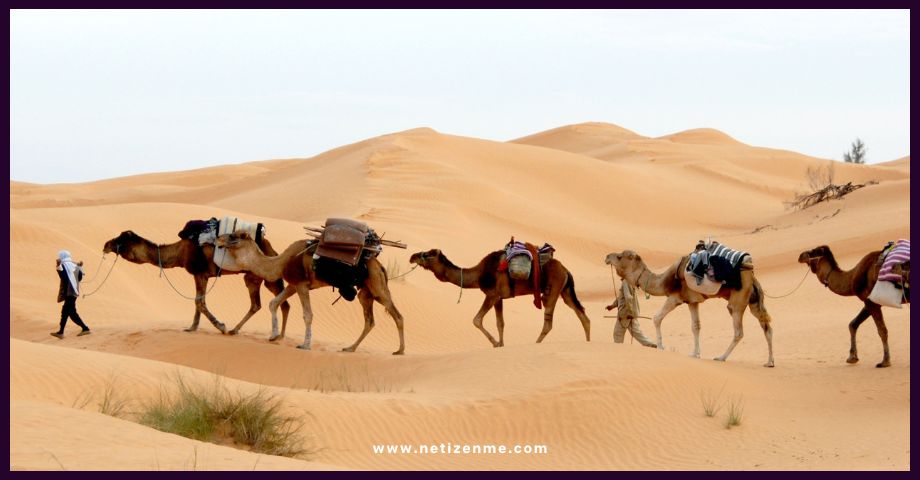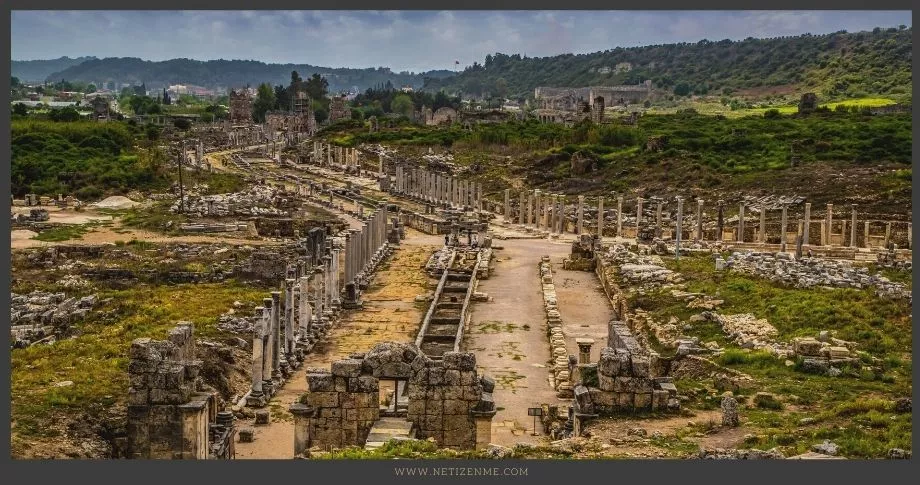
Trade across the Sahara Desert began thousands of years ago, as ancient peoples sought to exchange goods and ideas with one another. The Sahara, which stretches across Northern Africa, may seem an unlikely place for trade, but it has long been a hub of commerce and cultural exchange. Why did trade begin across the Sahara Desert?
Why did people trade in the Sahara desert?
One reason trade began across the Sahara is that the desert is home to valuable resources, such as salt, gold, and other minerals. These resources have been in high demand for centuries, and traders have been willing to brave the harsh desert conditions to access them. The desert was also an important source of precious stones and other luxury goods, highly valued by the wealthy and powerful.
Another reason trade began across the Sahara is that the desert was home to several important trade routes. The desert’s vast expanses provided a natural barrier between regions. Merchants soon discovered that traversing the desert could avoid the treacherous coastal routes and reach their destinations more quickly and safely. The trans-Saharan trade routes also allowed merchants to connect with different cultures and peoples, facilitating the exchange of goods, ideas, and technologies.
Climate change also played a role in the trade across the Sahara. In the past, the Sahara desert was more humid and fertile, and many people lived there. The people had to adapt as the climate changed, and many turned to trade to survive. They began to trade goods such as food, textiles, and tools, which allowed them to sustain their way of life in the desert.
Religion also played a role in the trade across the Sahara. Islam, which emerged in the 7th century, spread quickly across the desert, encouraging trade and cultural exchange. Muslim traders, scholars, and merchants traveled along the trans-Saharan trade routes, spreading their faith and connecting people across the desert.
Lastly, the desire for knowledge and understanding of other cultures also played a role in the trade across the Sahara. The traders were not only looking for trade goods but also for knowledge and understanding of other cultures. This exchange of ideas and information allowed people to learn about different customs, religions, and ways of life, contributing to a greater understanding and appreciation of other cultures.
What did they trade in the Sahara desert?
The Sahara Desert has been an important crossroads for trade routes for centuries. Historically, a variety of goods were traded across the Sahara, including salt, gold, ivory, textiles, and spices. The trans-Saharan trade routes were particularly important in the medieval period when gold from West Africa was traded for salt and other goods from North Africa and the Middle East. In addition, the camel caravans that crossed the Sahara also transported slaves, weapons, and luxury goods such as silks and ceramics. The trade routes through the Sahara were critical for the exchange of goods and ideas between West Africa and the wider world, and they helped shape the region’s economies and cultures over time.
Who were responsible for beginning the trade in the Sahara desert?
The trade routes through the Sahara desert have a long history, and it isn’t easy to attribute their beginning to any one group or individual. Trade has been taking place across the Sahara for thousands of years, as various groups have sought to exchange goods and ideas across the vast desert expanse.
One of the earliest known trading cultures in the Sahara was the Garamantes, who lived in what is now modern-day Libya and Niger. The Garamantes were known for their skill in agriculture and hydraulic engineering, which allowed them to create an oasis-based civilization in the middle of the Sahara. They traded with the Greeks and Romans in ancient times, exchanging gold, ivory, and other goods for Mediterranean luxury items.
Other groups, including the Berbers and the Tuareg, were also involved in the trans-Saharan trade. The Berbers, who are indigenous to North Africa, established trade networks across the Sahara and were known for their caravanning and trading skills. The Tuareg, a nomadic group that lived in the Sahara, were famous for their camel caravans and their role in transporting goods across the desert.
Trans-Saharan trade
Over time, other groups became involved in the trans-Saharan trade, including Arab merchants and West African kingdoms such as the Ghana, Mali, and Songhai empires. These groups played a major role in shaping the trade routes and the exchange of goods and ideas that took place across the Sahara desert over many centuries.
Why did trade begin across the Sahara Desert? In conclusion, trade across the Sahara Desert began for a variety of reasons, including the availability of valuable resources, the presence of important trade routes, climate change, religion, and the desire for knowledge and understanding of other cultures. Despite the harsh and inhospitable desert conditions, the trade across the Sahara played a crucial role in shaping the history and culture of the region, connecting people and cultures, and fostering economic and cultural exchange.
- Athens and Sparta

- The Success of The Delian League

- Treatment of Outlying Latium Towns During Roman Rule

This article is written by:
Our professional writers and editors are passionate about sharing high-quality information and insights with our audience. We conduct diligent research, maintain fact-checking protocols, and prioritize accuracy and integrity to the best of our capacity.
You can cite our articles under the author name "Netizenme"






